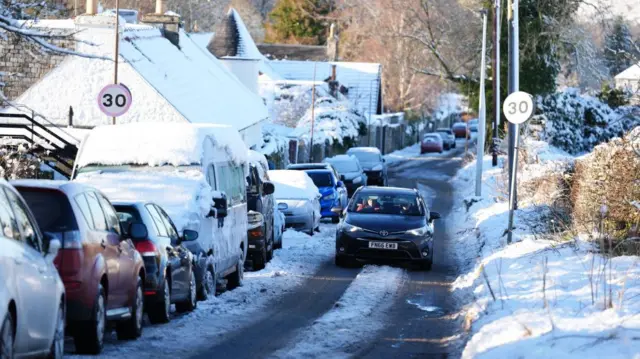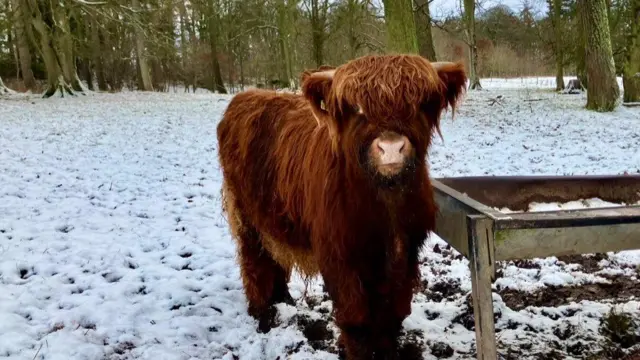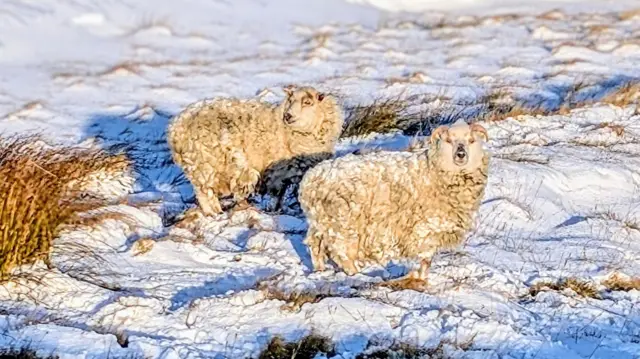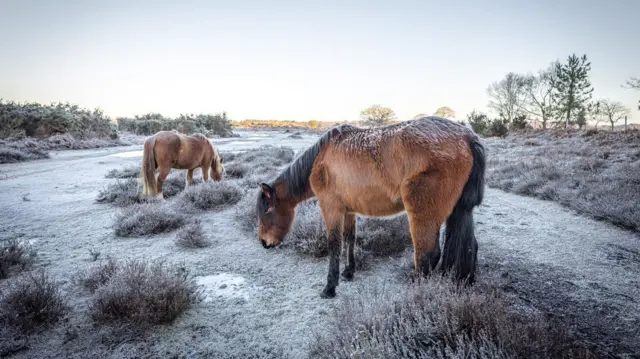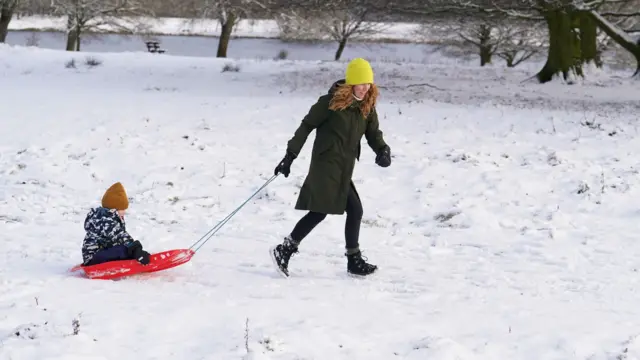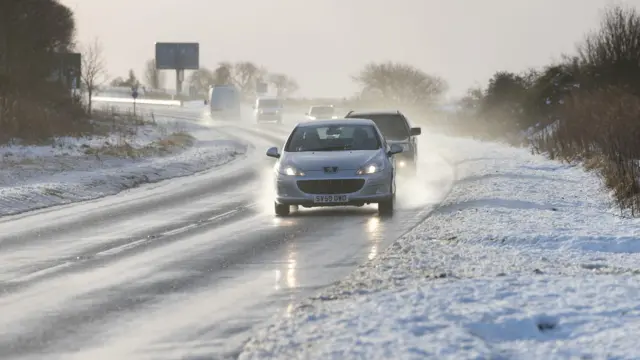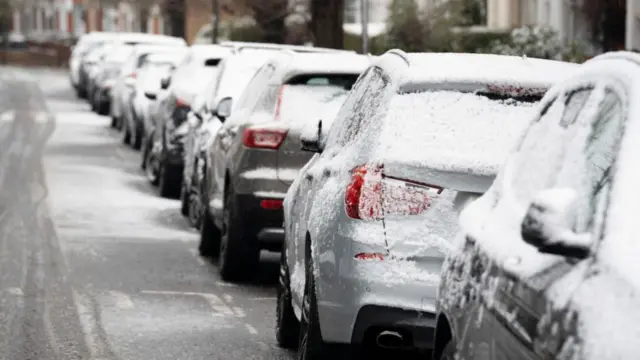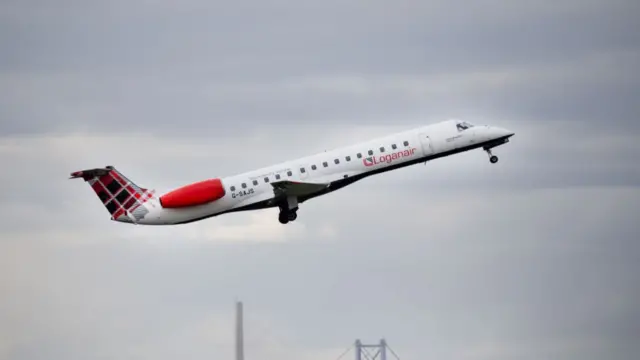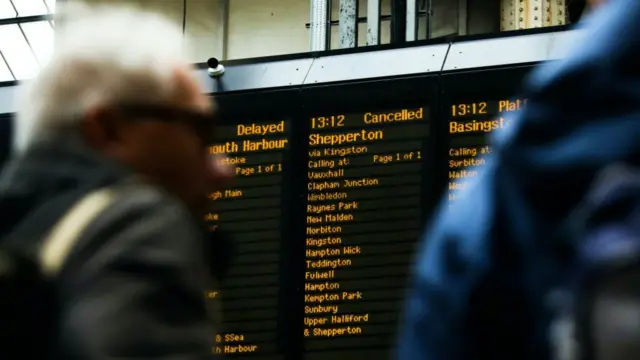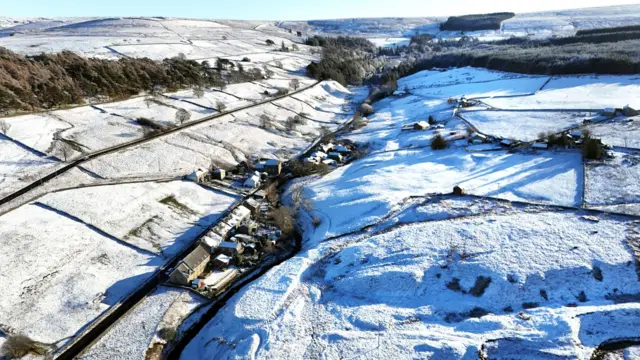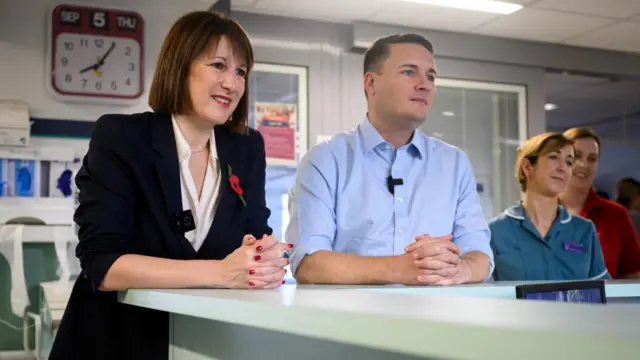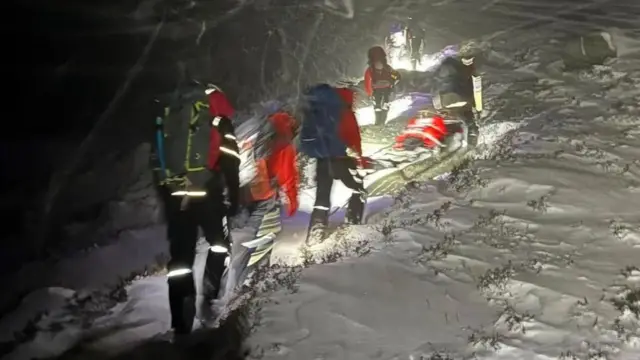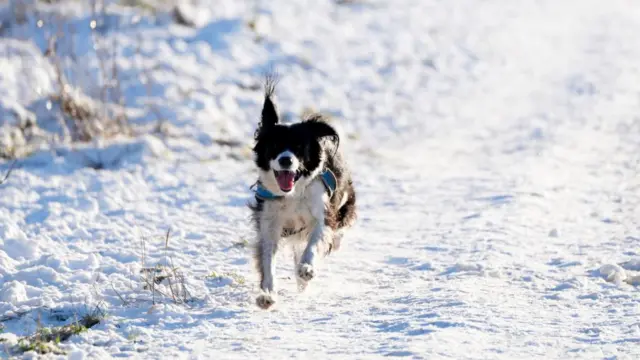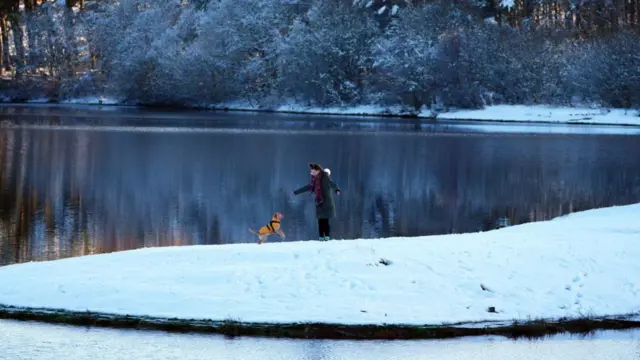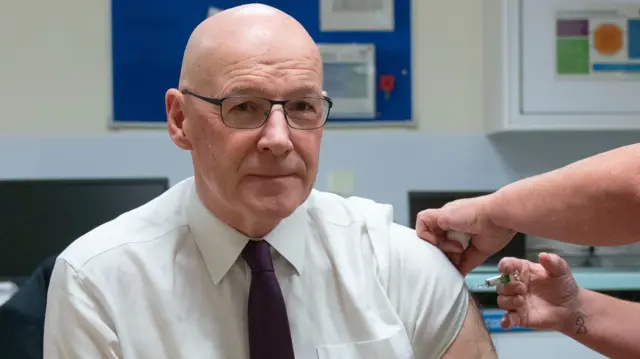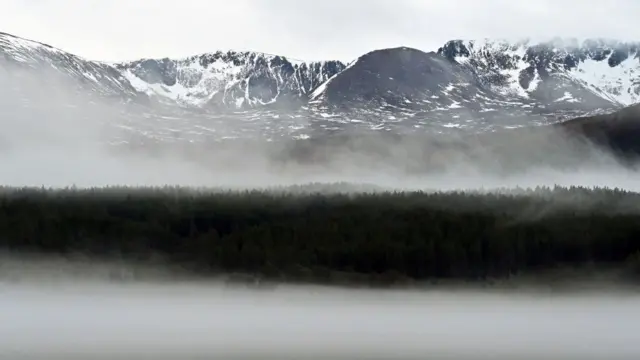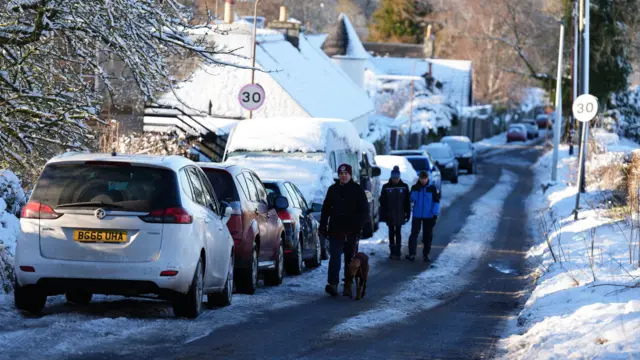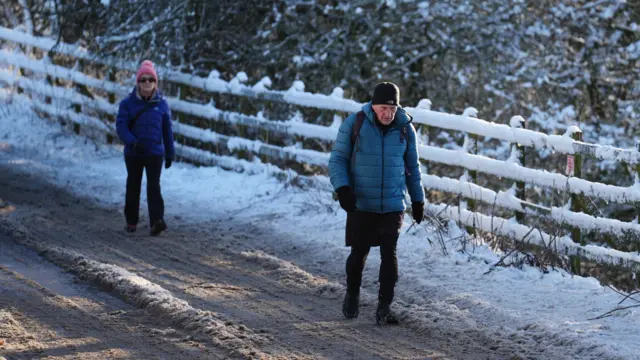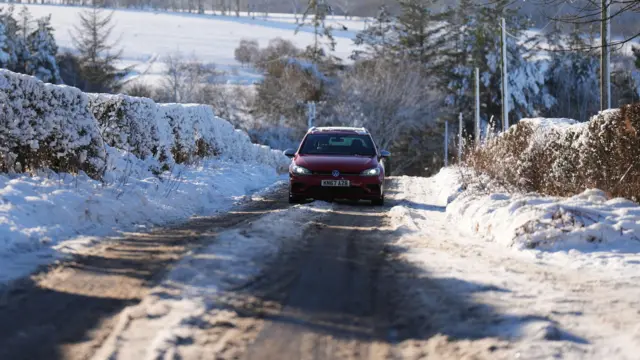Where does it snow the least in the UK?published at 18:48 GMT 3 January
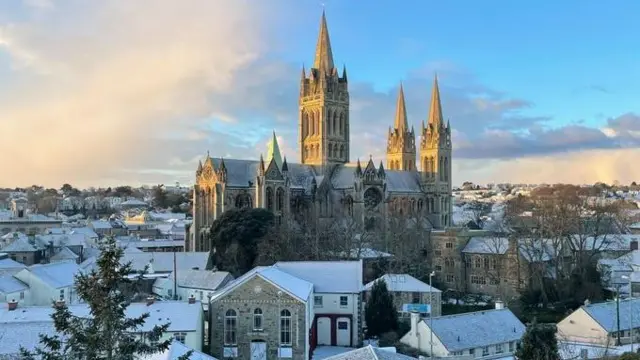 Image source, PA Media
Image source, PA MediaTruro in Cornwall saw some snow at the start of last year despite the county receiving the least snowfall annually
Just as snow is more likely to fall in some parts of the UK - such as in the north, like the Cairngorms - it is also less likely to occur in other places, such as the south-west.
This means that Cornwall holds the title of being the least snowy part of the UK, with about seven days of sleet or snow each year.
But, even within the county, snowfall can vary widely.
For instance, upland areas - such as Bodmin Moor - will see more frequent snow than relatively mild coastal areas like the Isles of Scilly.
However, even the Cornish archipelago saw snow when the so-called "Beast from the East" storm blew in during early 2018.
